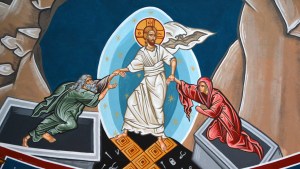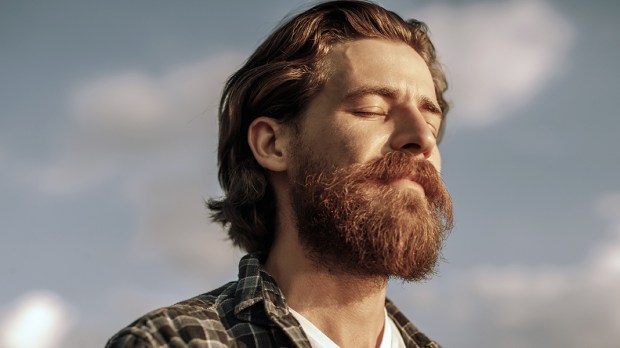Personal identity is in the news more than ever before.
Worldwide, writers are worried about the impact of social media on personal identity. Philosophers wiling to describe personal identity are getting top billing. On one end of the spectrum, high-tech companies safeguard personal identity digitally. On the other end of the spectrum, immigrants are trying to understand who they are when they leave their homeland.
The fact is, our confusion about who we are is a major stressor in our lives.
There used to be a consensus about who we are and what we are for. But that started to change, especially in the 20th century. Bishop Robert Barron gave a
on September 18 about how the thought of key philosophical figures led to today’s news headlines. Along the way, he shows how losing belief in God led to us forgetting who we are.Friedrich Nietzsche famously said “God is dead,” and then spelled out the consequences of the absence of God. Without God, there is no foundation for objective truth, and we have to assert our own truths by force of will. John Paul Sartre took Nietzsche one step further, saying we each decide who we are, and no one can criticize who we choose to be.
We live in a world they created. But while the great minds of Nietzsche and Sartre may have found it refreshing and freeing to assert their will on the universe and invent themselves, it leaves most of us exhausted or lost.
Pope Francis points out that the faith offers a better way.
The Book of Genesis tells stories about our origin that have powerful and profound things to say about our identity, he said.
“After having created the universe and all living beings, God created his masterpiece, the human being, made in his own image: ‘in the image of God he created them; male and female he created them,’” Francis said.
God “gave us his DNA, that is, he made us his children” he added. Those who “resemble him a lot or a little are his children: they have received this identity.”
Thus, your very body tells you who you are: A child of God.
“The human body shares in the dignity of ‘the image of God,’” saysthe Catechism, adding that spirit and matter “are not two natures united, but rather their union forms a single nature.”
The consequences of this fact are enormous.
God is love, and our bodies reflect his love. The Church shows this from baptism, where water on our head changes our soul, to marriage, where our bodies are united with another’s, to death, when our bodies or ashes are buried rather than scattered.
Mass trains us to love God with our bodies as we kneel and stand. We continually recall that our lives were saved when Jesus offered his body on the cross, and our hope secured when his body rose from the dead, which our bodies will one day do.

Read more:
Do I believe in the resurrection of the dead?
Second: Our intellects allow us to know God.
Aristotle calls man a “rational animal” whose greatest happiness is found in the exercise of his reason — in contemplating what is true. For us, the greatest human activity is coming to know God, through prayer and study.
Even considering our evolution, our intellect sets us apart from other animals such that we are different in kind. Check out this remarkable
by Father Robert Spitzer about the event hundreds of thousands of years ago when human beings suddenly developed language, art, and religion.Scientists can’t explain why that happened; Father Spitzer says it is the appearance of the transcendent soul. From that day forward, who we are as human beings was caught up in our thirst for knowledge. This happens at the level of a Cambridge scientist studying Venus or at the level of a child perpetually asking “Why?” And it happens when both hear Scripture together at Mass.
Third: Our will makes us who we are.
In addition to our intellect, we have a will that allows us to love in a way that is different from every other animal, and this is the highest expression of who we are.
Jesus sums up the Ten Commandments as “You shall love the Lord your God with all your heart,” and “love your neighbor as yourself.” This is the ultimate description of who we are: Lovers of God and lovers of one another.
This makes us so much more than what we could ever be by inventing and asserting ourselves. It takes us out of the hands of blind chance and places us in the hands of God who wants to bring us through death to his side.

Read more:
How to accept the body God gave you

